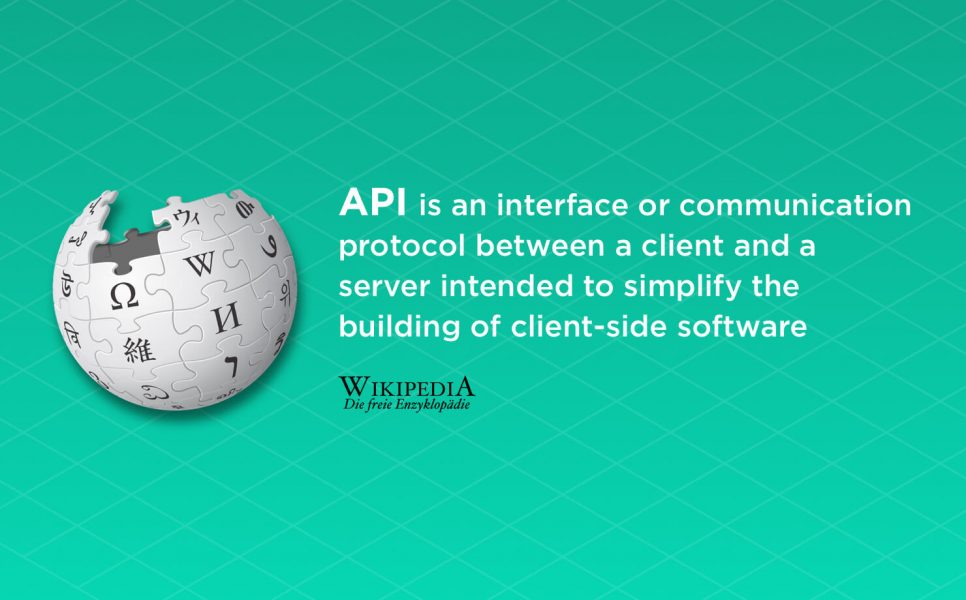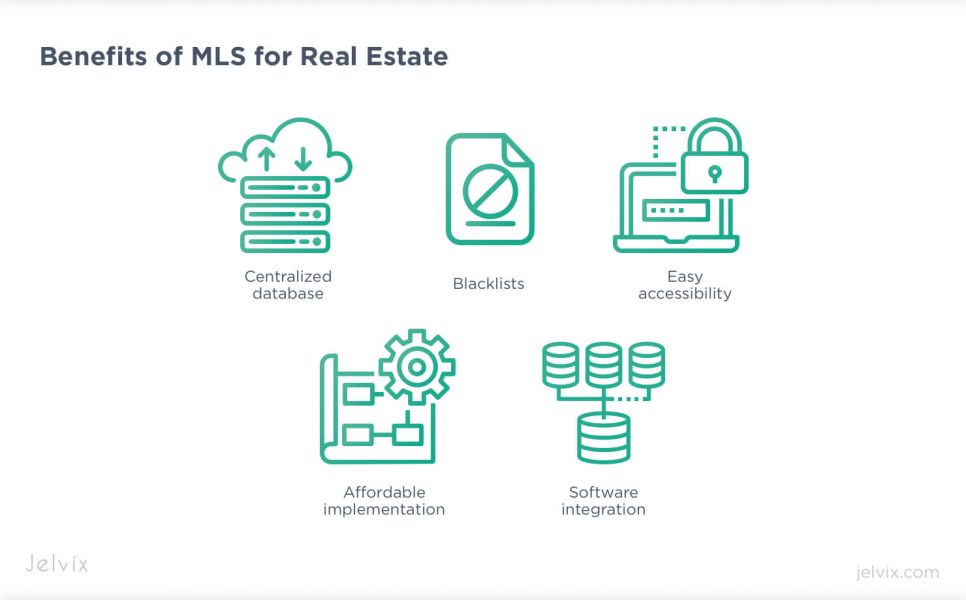The rapid development and partial digitalization of the real estate market dictate new, up-to-date demands regarding client and in-house estate agent interaction. And these standards must surely be met if you want to keep your business above the water in the realty industry.
To be efficient and high-performing, brokers need profitable, accessible means of interaction and communication with clients as well as with co-workers. Workflow centralization allows experts to stay on the same page at all times without going too far and manage various important work processes accessibly.
Multi-listing service (MLS) is a solution with a database for real estate brokers and other realty professionals to find each other’s listings and properties available for sale. Such systems are connected to local software and provide updated, relevant data on a certain commercial property in real-time.
Find out more about the advantages of implementing such systems in your realty agency workflow and top property data APIs further in the article.
What is API in Real Estate?
API is an interface that allows developers to build new software solutions using special blocks. API is almost a necessary integration in all modern software systems.
In terms of real estate-related website or app development, an API property management system passes data in a format different from HTML (in XML or JSON usually), which gives developers more accessibility and comfort of use.
In general, using an API is an excellent opportunity to focus on creating your software product’s carcass without necessarily going deep into details (the development of which from scratch often requires a huge share of the project budget).
Multi-Listing System Advantages for Real Estate Clients
MLS has been in existence for over a century – just not in the digital format for most of the time. In the second half of the 1800s, in Great Britain, realty agencies used to work by a single, universal scheme, using one and the same base of knowledge and even sharing brokerages. All brokers used to gather data about the objects on sale in some offices and share it with one another. Such cooperation was based on a simple motto – help me sell mine, and I’ll help you sell yours.
Today, this cooperative approach has shifted towards the online dimension, and we must say, that it’s become much more accessible. Now, you can access loads of info through a smartphone, tablet, PC, or any other Internet-connected device.
Clients who employ services from agencies that work via MLS can efficiently get all-around relevant data about certain realty objects in certain regions. In turn, those planning to sell or rent out real estate get to manage their agents’ performance quality. All in all, with MLS involved with professional real estate affairs, agency clients acquire:
- instant access to relevant, real-time updated data on realty objects by region;
- an ability to monitor & manage the performance of a personal real estate agent (you should think about switching an agent when you don’t see your object added to the recommendations list for a long time, for instance);
- high accessibility of MLS-based solutions (you don’t even need to call an agent to go through the most relevant offers);
- a chance to objectively check through pricing (clients can view realty prices by region & set competitive pricing for their real estate).
In general, the benefits mentioned above help to advance the quality of real estate agency services to a new level, providing all-around competitive advantages.
Learn how to build user-friendly real estate web apps with advanced features and integrations—explore the guide now.
Advantages of Implementing Multi-Listing Systems for Realtors
Connecting a dedicated MLS for the centralization of workflow and performing efforts of many agencies, realtors get benefits, such as described below.
- Centralized, real-time updated database. Having access to the MLS, any agent can connect with co-workers and share regional estate updates while all that info is stored in a universal database. All the info is processed at the end of communication sessions autonomously, allowing to:
- search required objects by parameters using logical and mathematical functions;
- create statistical reports;
- capture individual buyer requests;
- keep accessible inter-agent relations.
- An ability to share info about unreliable or controversial realty objects. MLS solutions collect data on all possible issues that may be going on in your business workflow at different levels. A particularly common industry problem is homeowners who gladly claim the deposit but don’t run to sell their property.
- Universal accessibility. You can access and use the system anywhere from a PC, tablet, or smartphone; just be sure to have an Internet connection. All the info is synchronized and readily available in the updated system in real-time.
- Affordable implementation. Developing an API for real estate is quite an expensive affair, as complex tech concepts are involved with the software engineering process (like Big Data, Artificial Intelligence, Internet of Things, etc.). You can simply use a readymade API instead and save dramatically on the budget. Obviously, In such a manner, you will also accelerate public project launch.
- Budget-friendly implementation: Avoid high development costs by integrating ready-made real estate data providers.
Ease of integration with custom software. MLS can be integrated with managing software in three common ways: via FTP Protocol, Real Estate Transaction Standard, and with the help of a certain real estate API. The latter method is the most optimal and beneficial way for a developer. Let’s take a look at some of the best APIs in the niche we are discussing then.
Top 10 APIs for MLS Integration
There are dozens of various APIs intended for the real estate field. Designed to provide the fastest, most flexible data, MLS API also opens up your development options so you can integrate with third-party platforms.
However, you should check how up-to-date and protected a certain solution is before deciding to integrate it. Here are APIs for real estate that have been well-tried and tested by hundreds of successfully finished projects. In our opinion, the following top-10 APIs are the best to choose from available options to help you boost the development of your services on the market.
1. Realtors Property Resource API
This is a freeware real estate listings API that grants you access to a huge database of realty objects and their owners interspersed throughout the USA. Notice that Realtors Property Resource API employs XML and SOAP to implement requests.
The API employs the two following methods: GetProperties, which returns the search results, and GetPropertyDetails, which returns certain data about an object. All the data is formatted into HTML.
This is one of the most global APIs, containing over 130 million records (including public reports and autonomous mortgage records). However, it doesn’t contain data related to demographics, criminal rates, climate, infrastructure, etc.
Note that this API is only available to MLS organizations.
2. Google Maps API
Google Maps API provides users with the exact geolocation data of real estate objects and even allows them to view these objects in 3D mode (which is the result of the work of trusty Google drones). This API works with both web and mobile applications. The only major downside is that it will cost $200 per month.
From a practical point of view, the Google Maps API is used for translating data that contains addresses or object names from text format to the format that can be used to view the object on the map.
For the proper performance of this integration, you should also connect the following APIs:
- Maps JavaScript API;
- Geocoding API (for transforming an address into coordinates);
- Directions API (for building routes);
- Places API (for search bar hints).
3. SimplyRETS
This real estate listing API here shows a great example of a solution for the rapid and accessible development of websites or apps for real estate agencies. With its capabilities, you will be able to launch a search by multiple requests at once without the need to create complicated code structures. For instance, if you need a traditional-style apartment in San Francisco with a central heating and alarm system, this API will help you find exactly what you need in a matter of minutes.
The data in this RESTful API are updated every two hours, and it costs up to $199 a month (the basic version costs $49, but the price can grow depending on how many requests you plan to make daily). With this API, you’ll be able to create both websites and fully-featured applications (including mobile platform-compatible ones).
4. Urban Geo Data API
Now, this commercial real estate API is focused on providing agents and their clients with fresh info on the availability of certain real estate objects, the level of noise and environmental pollution in the vicinity, crime statistics, population density, availability of elementary, middle, and higher educational establishments, hospitals, etc. In other words, everything that can explicitly demonstrate to a potential client the object they are about to purchase from all sides and in all aspects. Initial 2,5 thousand requests throughout a month are free of charge. Then, each search request costs $0,0005.
At the time this article was written, this API covered only the territory of the Czech Republic. So, if your target audience is based outside this beautiful republic, find some other solution.
5. Mortgage Payments API
Mortgage Payments API is an open-source solution for the calculation of mortgage costs. It can be integrated with both websites and applications. The calculation procedure in this API is quite simple: just enter an apartment’s full cost, the initial deposit amount, and the interest rate. A few instances past, you get precise calculations of your monthly payouts. You can also include taxes and add monthly insurance payments’ cost. And, what’s best of all, this real estate data API is absolutely free of charge.
From a usefulness point of view, this tool will definitely come in handy for agencies that wish to provide their clients with self-service web tools, scaling their business practically limitlessly without involving additional human work resources. It will also help decrease the self-cost of implementing such solutions in general (because, basically, you free your team of developers from the necessity to create a new calculator).
6.Zilyo API
Yet another good real estate API that can become your perfect assistant in developing apps and websites for renting apartments and hotel numbers. Currently, it grants access to databases housing in total over 6 million hotels alongside millions of offers from services like AlwaysOnVacation, Airbnb, HomeAway, and others.
Note that this REST API isn’t exclusive to any single type of user devices and can be used for either website development or the creation of mobile or web apps. As for the compatible formats, it receives server requests in JSONP, as well as in URI Query String/CRUD. The replies are in JSON and JSONP. These are quite common, secure formats that won’t cause any excessive compatibility issues when it comes to integrating some other third-party modules in your software.
7.Zillow API
This API boasts a pretty impressive reach—it contains data on 7,000 regions and 150 cities in the USA, including information about demographics, geographic objects’ situations, and objects’ pricing.
Zillow API contains a colossal number of relevant offers in terms of sales and rental of commercial objects all throughout the USA. Platform descriptions allow specifying the objects’ floor space, the number of rooms, and the purpose of each. Zillow also lets users find out prices for hundreds of thousands of previously sold apartments in order to get an objective picture of how prices are formed in certain regions. On top of that, this realtor API allows assessing the pricing change dynamics in terms of one object over time. Lastly, you can use it for free (just get the access key from zillow.com).
8. Rets Rabbit
This is a paid API with a $150-677 monthly cost that allows importing images of real estate objects. This capability ultimately enables you to unload the server part of your website or application, as all the major load will be redirected to the Rets Rabbit cloud services.
The major capabilities of this API include analytics tools, artificial intelligence (for search globalization and distribution of the data about your objects throughout the MLS), geocoding (a perfect solution for marking maps), data structuring (according to the RESO standards), and data import that is updated with minimum delays.
To integrate Rets Rabbit API with your software solution, provide RETS user data from your MLS or ListHub channel to your developer. In such a way, you’ll get the import of data that is stored in the cloud or serviced via MLS CDN.
9. Rets.ly
Using this REST API (which is even named as Bridge API), you get access to numerous volumes of structured data on real estate objects. Note that currently, the tool employs machine learning, utterly facilitating work with listings and image fields, and uses a smart data management method due to which you can form complex business logic without reducing the performance in your solutions.
In fact, this API will provide you and your users with a universal access to data from MLS lists and other sources that store info about the relevant realty objects. Note that all this data can be standardized through REST API, which means that there shouldn’t be any compatibility issues.
10. Walkscore
The last but not least prominent REST API in our top can be used both in the work with web apps and for the creation of mobile software. The solution helps you define a focal point for objectively assessing certain neighborhoods’ environments where a particular realty object is situated (for instance, it helps calculate how much time is needed to walk from home to bus stop by foot).
This is an excellent tool for agencies that sell real estate and companies that provide intermediary services for landlords and tenants. Indeed, with the incredibly wide reach (all the US states and even some cities and counties of Canada), users of this API can get an utterly objective picture of the object they are interested in (from the infrastructure data to the info about the criminal rates and transport junction specifics).
Learn more about the main stages of product development lifecycle to build a sustainable product.
Conclusion
As you can see, using MLS through the connection of the best real estate API not only helps to reduce the time developers require to create a new real estate product but also reduces the total budget needed to implement a solution.
If you are looking for a dedicated team that would implement your real estate concept on a top-notch level, let’s discuss the most optimal and profitable cooperation conditions right now!
Need a qualified team of developers?
Access top talent pool to reach new business objectives.




















